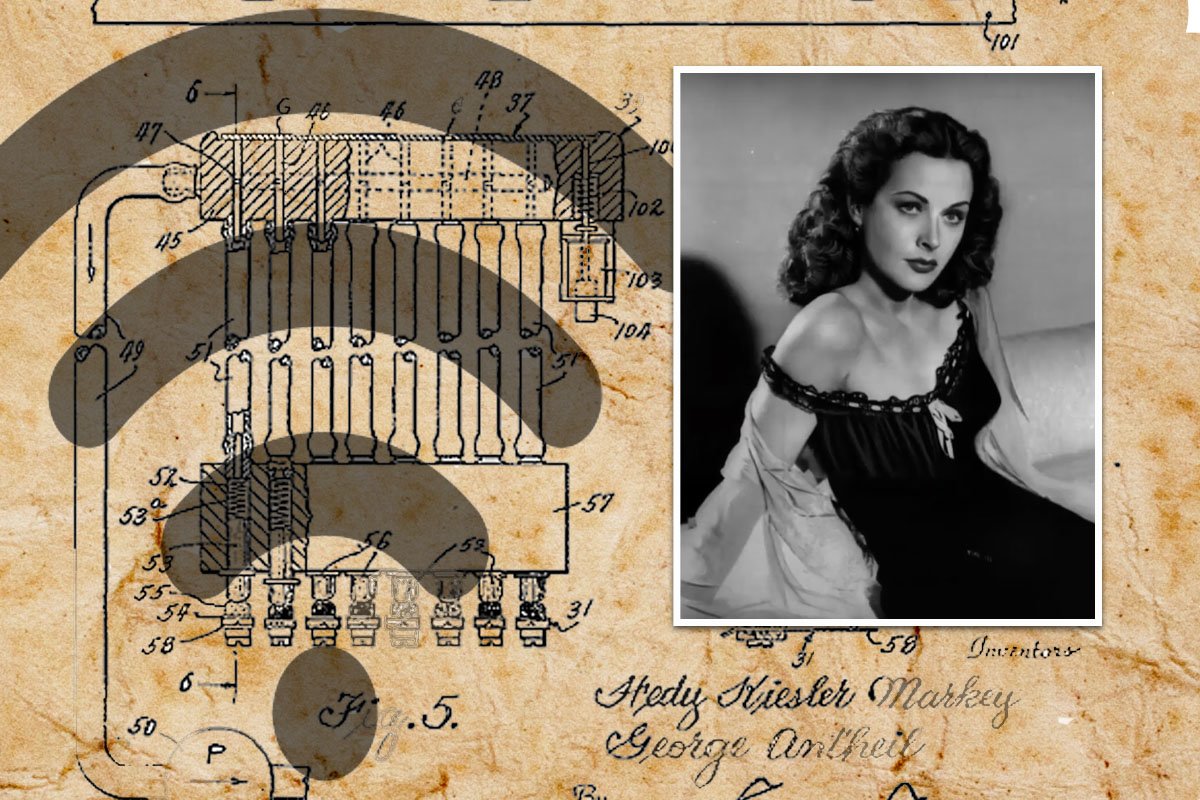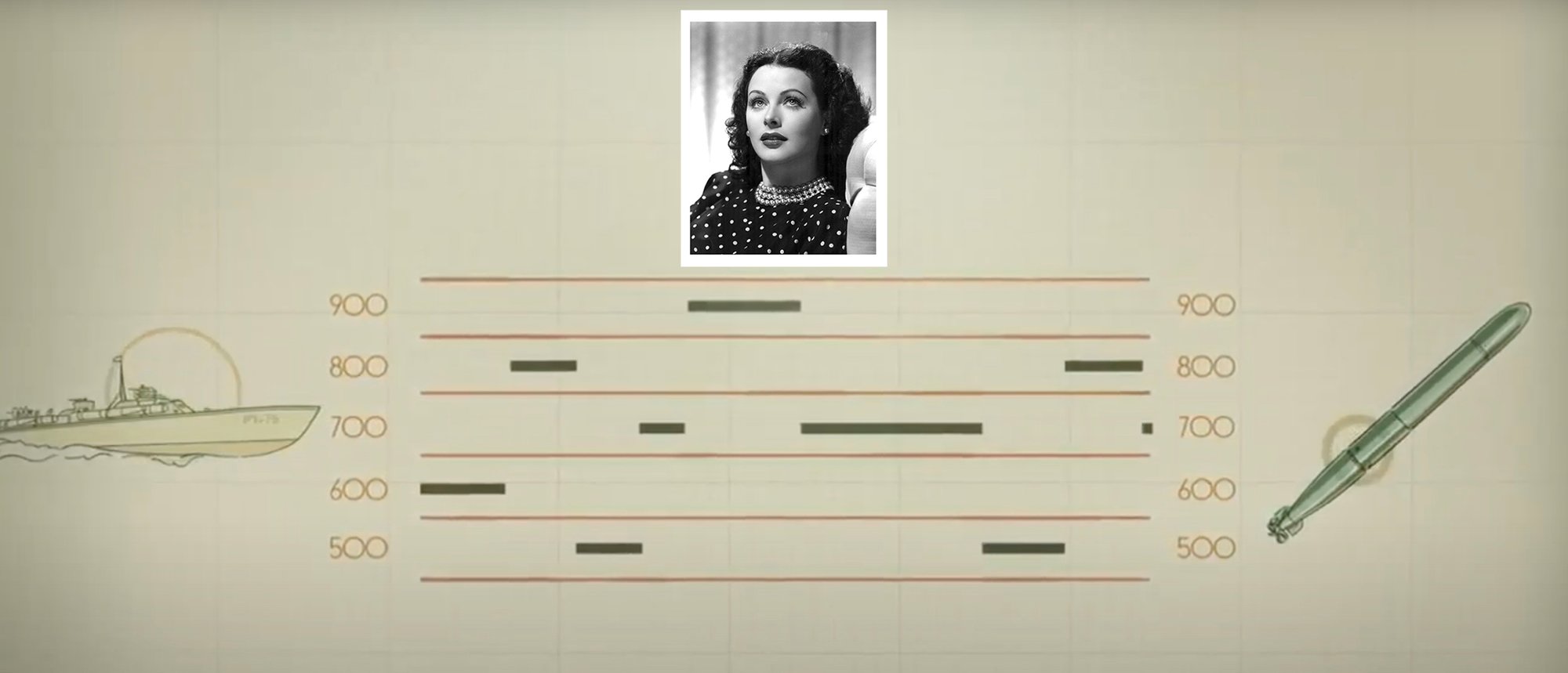The Mother of Wi-Fi: Hollywood Actress Hedy Lamarr’s Wartime Invention

Hedy Lamarr was an Austrian-born actress whose dark-haired beauty inspired the cartoon characters of Snow White and Catwoman. Starring in roles alongside Clark Gable, Spencer Tracy, and Jimmy Stewart, she had fame, fortune, and glamour. She was also considered the most beautiful woman in film. But this Hollywood bombshell was more than just a gorgeous face on the silver screen — she had a brilliant mind, too.
“She set aside one room in her home, had a drafting table installed with the proper lighting, and the proper tools — had a whole wall in the room of engineering reference books,” said Pulitzer Prize-winning author Richard Rhodes, who wrote a book about Lamarr and her inventions.
First she teamed up with Howard Hughes, who was attempting to build the fastest airplane in the world. “I thought the aeroplanes were too slow, so I decided that’s not right,” Lamarr recalled. “They shouldn’t be square, the wings. […] So I bought a book of fish and I bought a book of birds and used the fastest bird, connected it with the fastest fish. I drew it together and showed it to Howard Hughes and he said, ‘You’re a genius.’”

Her most influential idea came at a dinner party with avant-garde composer George Antheil. He was infamous for his Ballet Mécanique written for multiple player pianos, airplane propellers, and a siren, among other instruments. The pair began discussing the intricacies of synchronized player pianos in a symphony. They hypothesized that if player pianos could be synchronized to hop from one note to another, could the same be possible for radio signals in torpedoes?
These thoughts weren’t out of left field. The year was 1940, and by that time German U-boats had proved their effectiveness in decimating the warships of the Allies.
“Hedy’s idea was if you could make both the transmitter and the receiver simultaneously jump from frequency to frequency, then someone trying to jam the signal wouldn’t know where it was,” Rhodes recalled. This approach became known as “frequency hopping.”
Unfortunately for Lamarr and her business partner Antheil, the US Navy didn’t take their patented invention seriously. The Secret Communication System received a patent in 1942 but was never used in the war. Instead of employing her groundbreaking but unproven wartime invention, the Navy told Lamarr to use her celebrity for selling war bonds.
Although the Navy had made a stupendous mistake, it eventually came around during the 1950s when engineers rediscovered her patent, which became crucial later during the Cuban missile crisis. The wireless technology set the framework of modern spread-spectrum technologies, including Wi-Fi, Bluetooth, fax machines, top-secret military and diplomatic communications, satellite communications systems, GPS, and even US military guided missiles. Lamarr didn’t receive public recognition for her contributions to innovation until the Electronic Frontier Foundation gave her a Pioneer Award in 1997.
In 1997, Lamarr was the first woman to receive the Bulbie Gnass Spirit of Achievement Award, known as “The Oscar of Inventing.” She died in 2000 at age 85 and 14 years later was inducted into the National Inventors Hall of Fame.

Matt Fratus is a history staff writer for Coffee or Die. He prides himself on uncovering the most fascinating tales of history by sharing them through any means of engaging storytelling. He writes for his micro-blog @LateNightHistory on Instagram, where he shares the story behind the image. He is also the host of the Late Night History podcast. When not writing about history, Matt enjoys volunteering for One More Wave and rooting for Boston sports teams.
BRCC and Bad Moon Print Press team up for an exclusive, limited-edition T-shirt design!
BRCC partners with Team Room Design for an exclusive T-shirt release!
Thirty Seconds Out has partnered with BRCC for an exclusive shirt design invoking the God of Winter.
Lucas O'Hara of Grizzly Forge has teamed up with BRCC for a badass, exclusive Shirt Club T-shirt design featuring his most popular knife and tiomahawk.
Coffee or Die sits down with one of the graphic designers behind Black Rifle Coffee's signature look and vibe.
Biden will award the Medal of Honor to a Vietnam War Army helicopter pilot who risked his life to save a reconnaissance team from almost certain death.
Ever wonder how much Jack Mandaville would f*ck sh*t up if he went back in time? The American Revolution didn't even see him coming.
A nearly 200-year-old West Point time capsule that at first appeared to yield little more than dust contains hidden treasure, the US Military Academy said.












